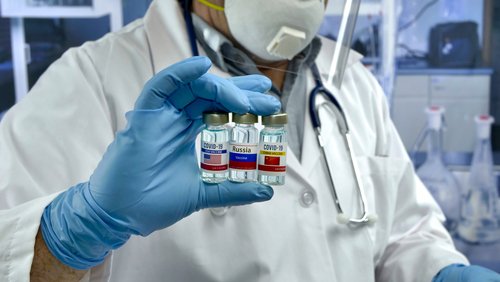Brussels (Brussels Morning) In order to better understand why Brussels residents have doubts about a vaccine, or refuse the vaccine outright, the Brussels Region ordered three studies. One of these studies – a collaboration between UC Louvain, the ULB and coordinated by the Brussels Studies Institute – shows that clear communication and a ‘ leave no one behind ‘ policy play a crucial role in the attempt to vaccinate as many people as possible. .
“In this study, we didn’t just look at what works and what doesn’t work in the Brussels vaccine strategy,” says Anneloes Vandenbroucke, research coordinator of the Brussels Studies Institute, according to a report by BRUZZ. “We also looked at the experience and significance of the vaccine for both professionals and the target audience. After all, a lot of polarization has arisen around it, and vaccine refusal cannot be attributed to one particular socio-economic group. We do have to look at the needs of each target group we want to reach.”
This investigation revealed a number of needs to be met. First, the study argues in favor of variation within the number of instruments for sensitizing to vaccination. “For example, large vaccination centers are good for vaccinating many people quantitatively,” says Vandenbroucke. “But in addition, initiatives such as the vacci bus are also needed, which reach places with social life and which can convince people who were still a bit in doubt.”
“Finally, for the strong doubters, you need the opportunity to have a conversation with someone with whom a relationship of trust has been built, such as the GP. The Region is currently focusing on this, so we argue that this should be maintained, but that even more attention should be paid to coordination and coordination,” says Vandenbroucke. “The various initiatives are not always well informed about each other’s work.”
See your colleagues again
Secondly, the importance of clear communication became clear during the study. Communication that focuses on public health, and that addresses people through their broader concern for well-being and health, appears to be especially crucial. Even doubters crave scientific information and want to understand what a vaccine is and what it does exactly. They want to discuss this: communication should not be imposed ‘from above’.
Don’t let anyone down
Another important point is the feeling that no one is left behind, the study indicates. “Getting vaccinated is often presented as an act of civic responsibility. But people who have been living in deprivation for years feel abandoned for a long time. Then why should they do anything in return?” explains Vandenbroucke. “In other words, time and space must be created for a system that leaves no one behind and in which people who, for example, live in deprivation, also get the feeling that they are taken care of.”




